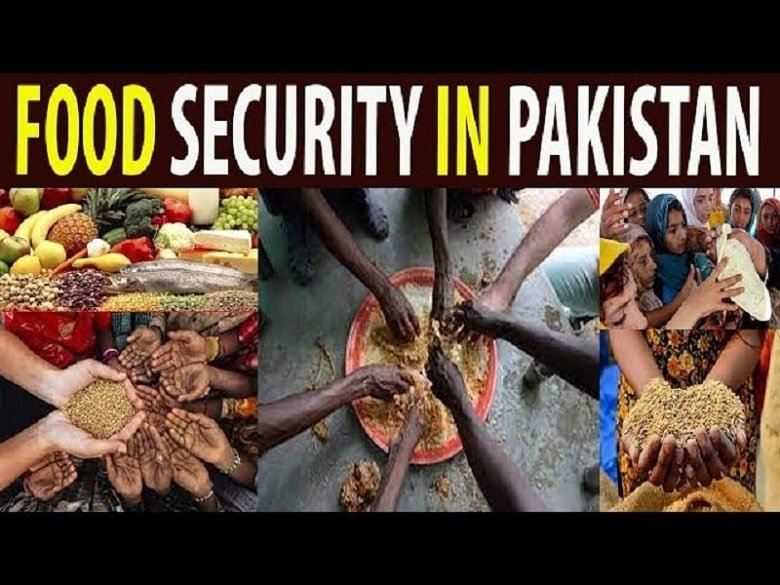Florence Rolle
Fernanda Thomaz Da Rocha
Coco Ushiyama
Robert Skidmore
This year’s theme for the World Food Day – ‘Right to food for a better life and a better future’ reminded us of the urgent need to recommit ourselves to achieving a world free from hunger. The collective efforts of the United Nations agencies in Pakistan highlight our dedication to ensuring that every person has access not only to sufficient food but also to nutritious and safe food that empowers them to lead healthy and sustainable lives. As we focus on promoting healthy food habits and raising awareness about food safety, we recognize that addressing hunger and malnutrition is crucial for building a brighter future for families and communities across the country.
In a nation where more than 60% of the poor live in rural areas, many families confront the harsh reality of food insecurity. With over 50% of the population unable to afford a healthy diet, Pakistan mirrors global challenges, where 2.8 billion people face similar issues around the world. Rising hunger affects up to 757 million people worldwide, alongside a troubling increase in malnutrition and obesity. In Pakistan, the common diet heavily relies on cereals, fats, and sugars, while the consumption of fruits, vegetables, and dairy remains alarmingly low. The cost of a healthy diet, approximately 280 PKR per day, is beyond the means of the majority of the population.
The Food and Agriculture Organization (FAO) plays a pivotal role in addressing these challenges by promoting sustainable agricultural practices and supporting smallholder farmers. Through partnerships with local governments, FAO aims to enhance food production, reduce losses, and improve dietary diversity via nutrition-sensitive farming. These initiatives focus on empowering communities to adopt healthier food practices and ensuring access to safe, nutritious, and affordable food for all. By strengthening local food systems and fostering resilience, FAO envisions a future where no one is left hungry, paving the way for healthier families and communities across Pakistan.
Also Read: India’s Growing Drift from Russia: A Strategic Recalibration
The International Fund for Agricultural Development’s (IFAD) commitment to food and nutrition security is deeply rooted in the organization’s mission to empower rural communities. IFAD is dedicated to uplifting smallholder farmers, equipping them with the tools and knowledge they need to cultivate diverse and nutritious foods that not only sustain their families but also strengthen their communities. By promoting sustainable agricultural practices and supporting inclusive rural development, it aims to create resilient livelihoods that can withstand the challenges of climate change and ensure a brighter, healthier future for all.
Similarly, the World Food Programme (WFP) is determined to fight hunger and support families in need, working tirelessly to ensure that no one in Pakistan goes to bed hungry. WFP in Pakistan works to improve food security and nutrition across the country, with a strong focus on supporting the most vulnerable communities. WFP collaborates with the government and other partners to address malnutrition, strengthen sustainability of national food systems, and enhance adaptability to climate shocks. Through the BISP-funded Benazir Nashonuma Programme, WFP supports the government in preventing stunting in pregnant and breastfeeding women and children under 2 nationwide. By implementing a variety of programmes, including nutrition assistance, school meals, and livelihood support, WFP Pakistan helps communities build resilience, improve health outcomes, and works towards achieving zero hunger.
ITC is focused on promoting sustainable and inclusive economic development across a wide range of stakeholders, including small businesses, women, youth, and value chain actors. Sustainable trade improves to markets and fostering fair and equitable participation in value chains. Through targeted support, capacity-building, and policy advocacy, ITC strengthens resilience and promotes inclusive growth that benefits entire communities, particularly in vulnerable and underserved regions.
The challenges we face—food insecurity, food safety, limited access to nutritious food, and economic development—are deeply interconnected, and addressing them requires a coordinated and holistic approach. By combining our strengths and expertise, we can build resilient food systems that withstand the impacts of climate change and ensure that everyone has access to the nutritious food they need.
Also Read: Why Foreign Investors Exit Indian Market?
We invite everyone—government and non-government bodies, the private sector, community members, and families—to join us in reaffirming our shared commitment to building a more food and nutrition secure future for Pakistan. By working together to foster healthy eating habits, enhance nutrition security, and advocate for the right to food, we can make a real difference in the lives of millions. Through collaboration and compassion, we can create a healthier, more secure, and thriving nation for ourselves and for generations to come.
Florence Rolle is FAO Representative in Pakistan
Fernanda Thomaz Da Rocha is Country Director, IFAD
Coco Ushiyama is Country Director, WFP
Robert Skidmore is ITC Representative in Pakistan
The Diplomatic Insight is a digital and print magazine focusing on diplomacy, defense, and development publishing since 2009.



